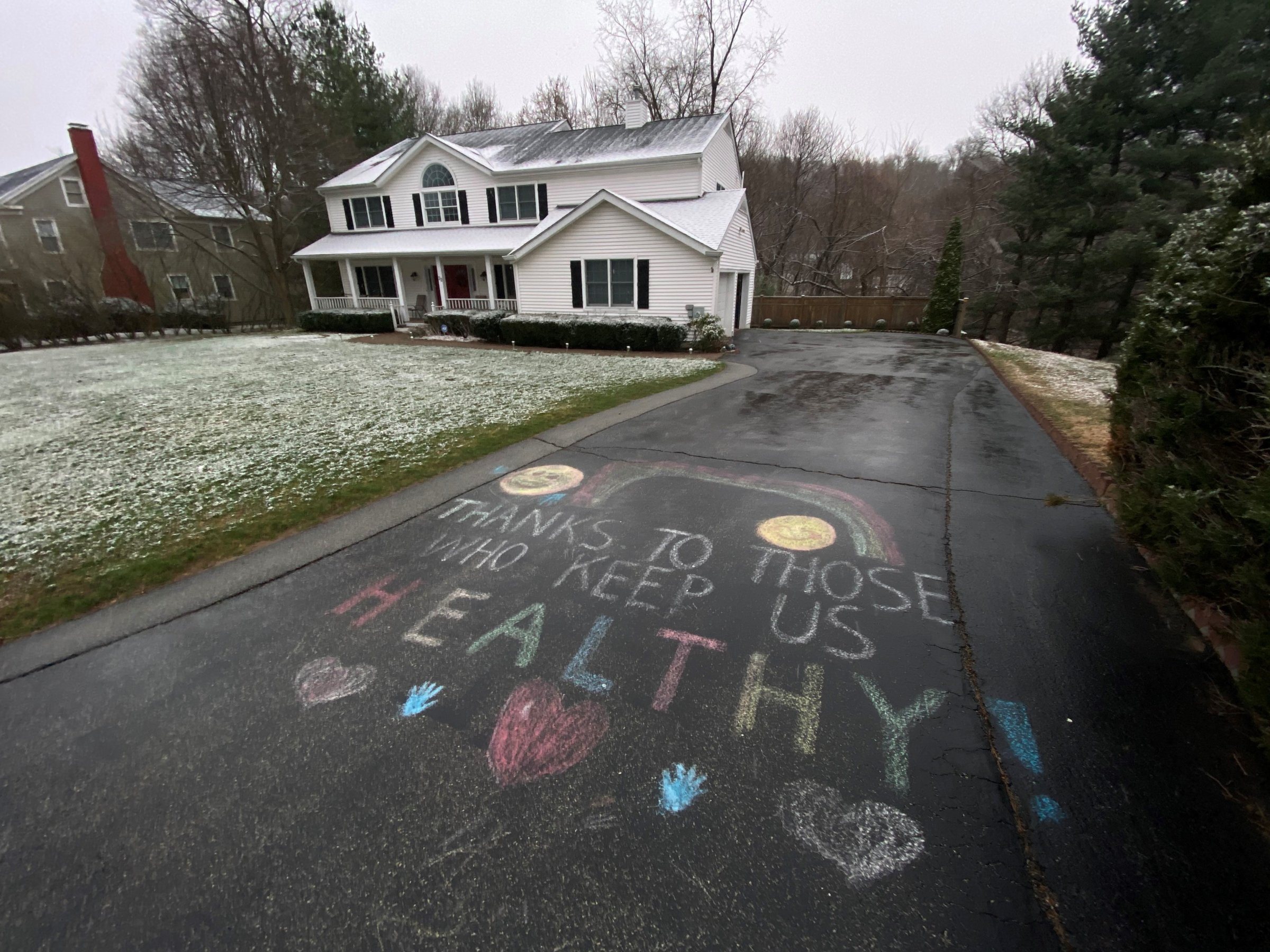
Dr. Natalie Yip is the associate director of Medical Intensive Care Units and Medical Critical Care Service at Columbia University Irving Medical Center. She helped stand up the first dedicated COVID-19 intensive care unit in her medical center as the first patients in the outbreak were being treated. What follows is a lightly edited transcript of her story.
I am of Chinese-American descent and I have a number of family members in Hong Kong. We had actually planned a summer vacation in China for the end of July. My kids—a 12-year-old and a 9-year-old—had never been. Then, around the end of January, we started getting messages from our relatives asking us for masks because things were getting short. The first sign we noticed this was having a global effect was when we went to CVS to buy masks they were all out.
When we had our first patient in the beginning of March, everything became very real. The patient was a transfer from another hospital. The nurse practitioner who was on overnight was really quick thinking and had gone through the protocol on who to test for COVID-19, and decided this patient should be ruled out. So everybody on staff was wearing the right PPE from the get-go. We worked to set everything up nicely—the garbage can is in the right place, the Purell is in the right place, you don and doff in precisely the right order so you don’t contaminate yourself.
My part in this in the beginning was people management: talking to the staff, managing anxiety and expectation, trying to support everybody. And then very quickly we realized there was a lot more to it: how to adjust our workflows to reduce health care worker exposure, or how to manage visitors. We had a very steep learning curve. We banded together and started developing guidelines that ranged from how to manage intubation of COVID-19 patients to what sort of PPE needs to be worn. We quickly coalesced as a community to teach and learn with each other. It’s almost like learning how to be a doctor again.
A lot of the week I spent as the attending physician in our “COVID ICU” was spent focusing the team on supporting each other, taking care of each other, rallying the troops and making sure that the morale was high as we were going through this. Within a week, our whole MICU was full of COVID patients, as was the neighboring SICU. Then, a whole other ICU. And then three others were built within the ORs and filled with COVID patients. We have more than doubled our ICU capacity in just a couple of weeks.
We had to restructure the staffing, so that instead of taking care of 12 or maybe 18 patients at a time, we would now have to take care of upwards of 40 to 50 patients at a time. How do I come up with a plan to safely take care of as many patients as possible with as much expertise as we have, and also remembering that my little boxes on my Excel spreadsheets are all human beings, real people going in and taking care of a ton of very, very sick patients. All knowing that they too are at risk of becoming a patient themselves.
We essentially brought in physicians from all walks. I’m affectionately calling them “the enlisted,” but they really are volunteering to come in and work and be in the middle of this battle. It is so impressive. We have a gastroenterologist as an ICU attending. We have psychiatry interns working in what we are calling our ‘pop up’ ICU, an ICU that never existed a week ago. It’s just phenomenal—the teamwork and the commitment. There’s obviously a little bit of apprehension as we are showing them how to put on their goggles and how to put on their mask appropriately. There are times when we pause and say wow, I don’t think any of us are going to be the same, ever again.
When I come home from the hospital, I take off my shoes and coat on the porch. I go upstairs to shower, tell my kids, “Hey, I’ll hug you in a minute.” I’ll shower and get in my PJs because usually it’s 9 o’clock at night when I get home. Dinner’s been late lately, and they usually wait, because it’s homeschooling. My husband’s been making dinner, but he’s going to become the COVID physician for one of the units. So tables have turned. He’s a stroke neurologist. I told him, we have to sit down so I can tell him how to don and doff his protective gear properly. I will make sure he has the right technique. He and I are teaching each other. I have to learn the kids schedule, and know how to homeschool and figure out all the different appointments and stuff online. And he is going to have to learn how to take his shoes off on the porch and shower before he talks to us.
—As told to Brian Bennett
More Must-Reads From TIME
- Dua Lipa Manifested All of This
- Exclusive: Google Workers Revolt Over $1.2 Billion Contract With Israel
- Stop Looking for Your Forever Home
- The Sympathizer Counters 50 Years of Hollywood Vietnam War Narratives
- The Bliss of Seeing the Eclipse From Cleveland
- Hormonal Birth Control Doesn’t Deserve Its Bad Reputation
- The Best TV Shows to Watch on Peacock
- Want Weekly Recs on What to Watch, Read, and More? Sign Up for Worth Your Time
Contact us at letters@time.com